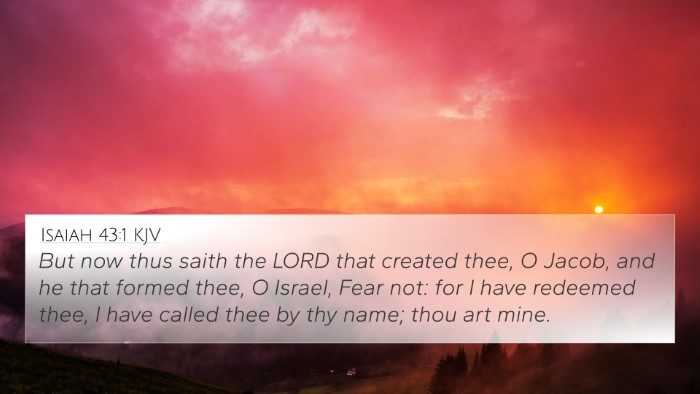Meaning and Interpretation of Acts 27:24
Acts 27:24 states: "Saying, Fear not, Paul; thou must be brought before Caesar: and, lo, God hath given thee all them that sail with thee." This verse is rich in meaning, reflecting themes of divine assurance and purpose amid perilous circumstances. The context of this verse finds Paul on a tumultuous journey to Rome, facing life-threatening storms and distressing conditions.
The insights from renowned public domain commentaries reveal several layers of meaning:
Divine Assurance in Crisis
Both Matthew Henry and Albert Barnes emphasize the importance of God’s promise to Paul. This assurance serves as a reminder that God is sovereign over situations, especially when His servants face adversity. Paul’s acknowledgment of this divine encouragement illustrates a fundamental principle in Christian faith: even in dire straits, one can hold onto hope through God’s promises.
Paul's Leadership and Responsibility
Adam Clarke notes that Paul’s role as a leader is significant in this context. God not only reassures Paul but also guarantees the safety of all aboard. This underscores the biblical principle of divine favor extending beyond the individual to include those who are connected to him. Paul, as a vessel of God’s purpose, stands as a beacon of hope for others, emphasizing the collective impact of righteousness.
Theological Implications
The theological implications of Acts 27:24 explore God’s literal and figurative rescue. Henry's commentary reflects on the implications of God choosing to save the entire ship's crew through His promise to Paul. Here, the interconnectedness of God's people is evident, suggesting that believers are often linked in destiny.
Cross-Referencing Biblical Texts
To deepen the understanding of Acts 27:24, we can explore several related verses that provide additional context and meaning:
- Matthew 28:20: "And, lo, I am with you always, even unto the end of the world." - This verse echoes the assurance of God's presence and protection.
- Isaiah 43:1-2: "Fear not: for I have redeemed thee, I have called thee by thy name; thou art mine." - A reminder of God’s ownership and care in times of trouble.
- Psalms 46:1: "God is our refuge and strength, a very present help in trouble." - This verse highlights God's role as a refuge during crises.
- Acts 18:9-10: "Then spake the Lord to Paul in the night by a vision, Be not afraid, but speak, and hold not thy peace: For I am with thee..." - God's recurring encouragement to Paul showcases His commitment to safeguarding His servants.
- Romans 8:31: "What shall we then say to these things? If God be for us, who can be against us?" - Reinforcing the strength found in divine protection.
- Philippians 4:6-7: "Be careful for nothing; but in every thing by prayer and supplication with thanksgiving let your requests be made known unto God..." - This supports the practice of turning to God amidst anxiety.
- 2 Timothy 4:17: "Notwithstanding the Lord stood with me, and strengthened me; that by me the preaching might be fully known..." - Illustrates that God’s presence empowers His servants to complete their mission.
Thematic Bible Verse Connections
The theme of divine protection and purpose resonates throughout scripture. Acts 27:24 can be linked with various overarching themes including:
- God's assurance in times of fear.
- The responsibilities of leadership and its impact on others.
- The promise of God's presence in fulfilling one's destiny.
Conclusion
Acts 27:24 not only reassures Paul but also emphasizes the collective security of all aboard the ship, encouraging believers to rely on God’s promises during turbulent times. The insights from Matthew Henry, Albert Barnes, and Adam Clarke confirm that even in the depths of despair, God's presence and commitment to His people can provide hope, strength, and direction.
For those exploring Bible verse cross-references or looking for connections between Bible verses, the analysis provided above offers a framework for understanding how Acts 27:24 can engage with and illuminate various other scriptures.


























